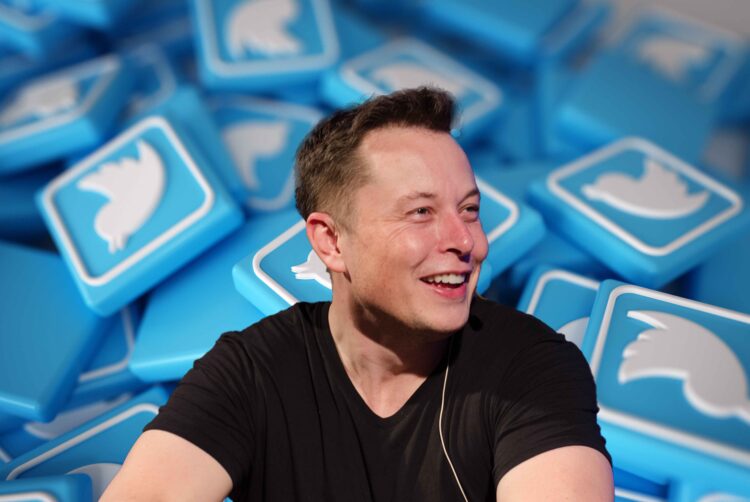Media-buyers quiet on Twitter pause reports

Network media-buying groups Interpublic Group (IPG) and Havas have reportedly recommended its media agencies should pause buying ads on Twitter for at least one week.
According to an email seen by Morning Brew contributor Ryan Barwick, MAGNA, the centralized IPG Mediabrands investment resource, has advised clients to enact the temporary pause given the current unpredictable environment at Twitter.
Meanwhile, CNBC, citing “a person familiar with the matter”, reported IPG has told clients to “wait for clarity”. IPG Mediabrands’ principal media agencies are UM and Initiative and its clients include Coca-Cola, Johnson & Johnson, American Express, and Spotify.
IPG has not publicly confirmed either report and did not respond to a request for comment by The Media Leader.
Havas Media has reportedly advised clients to pause Twitter ads, too, according to The Wall Street Journal. Havas did not respond when asked for comment.
Fellow network media-buying groups WPP, Publicis Groupe, and Omnicom did not respond either when asked for comment about whether they will keep buying Twitter ads during a chaotic leadership transition under Elon Musk. Dentsu declined to comment.
Twitter’s chief customer officer Sarah Personette, among other top executives including VP of global sales Jean-Philippe Maheu, have all announced they have left the company in recent days. An additional 25% of employees are reported to be on the chopping block as the company looks to cut costs.
Hi folks, I wanted to share that I resigned on Friday from Twitter and my work access was officially cut off last night.
— Sarah Personette (@SEP) November 1, 2022
And though Musk has said that “no major content decisions or account reinstatements will happen” before a newly formed “content moderation council” decides on best practice for moderation, Twitter has already been criticized for a sharp uptick in hate speech and apparent decline in employees’ enforcement tools.
According to a report from Bloomberg, the company has rescinded key content moderation tools from some employees in Twitter’s Trust and Safety group, though it still employs third party contractors and uses automated tools to attempt to stamp down on hateful content.
The decrease in human-based moderation, however, comes just ahead of the highly competitive US midterm election. Other social media companies, responding to past criticism for allowing misinformation and disinformation to spread on their platforms, have attempted to institute more strict moderation during election season in comparison, though results have been mixed at best.
Twitter’s approach has already upset users and advertisers who value moderation of hateful content, while right-wing figures have already prematurely celebrated Musk’s takeover as a win for “free speech” and for causing “liberal tears”.
Just days after taking over the company, Musk himself retweeted misinformation regarding the recent violent attack against House Speaker Nancy Pelosi’s husband Paul, before eventually deleting the tweet.
Meanwhile, US Senator Chris Murphy has already asked the federal government to investigate the national security risks associated with Musk’s ownership of Twitter, as Saudi Arabian entities, which helped finance Musk’s purchase of the company, are now the second-largest shareholder of the now-private company.
The bevy of concerns have prompted advertising collectives such as the Global Alliance for Responsible Media (GARM) to publicly plead for Musk to continue Twitter’s work with them to ensure platform and brand safety on Twitter.
“Platforms should be safe for all, and suitable for advertisers. For advertisers this is non-negotiable—and we expect Twitter to uphold its commitments to GARM,” reads the letter.
While Musk risks leaving advertisers no choice but to stop spending on the platform, he appears to be pre-emptively attempting to recoup lost ad revenue through a variety of other models. For instance, the “chief twit” has outlined a new Twitter Blue subscription model that would cost users $8/month to maintain their verification badge (also known as the “blue tick”), receive fewer ads, have the ability to post long videos and audio clips, and receive priority in replies and searches.
Twitter’s current lords & peasants system for who has or doesn’t have a blue checkmark is bullshit.
Power to the people! Blue for $8/month.
— Elon Musk (@elonmusk) November 1, 2022
The Washington Post reports Musk has also directed Twitter engineers to work on a feature that would allow users to charge people to view videos they post on the platform, with Twitter taking a cut of the profits. Axios has also reported Musk wants to revive the short-form video platform Vine.
The various changes have caused some users to consider leaving the platform altogether. Reuters reported ahead of Musk’s takeover that Twitter was already shedding its most active users, and circumstantial evidence appears to imply that such an exodus is accelerating now that the world’s richest man is at the helm.
Mastodon, a rival service, has reportedly seen a record 70,000 new users download its app in the wake of Musk’s takeover.
Some, such as celebrities Shonda Rhimes, Sara Bareilles, and Mick Foley, as well as popular gaming news account Nibel, have simply decided to leave Twitter altogether without committing to a specific alternative.




